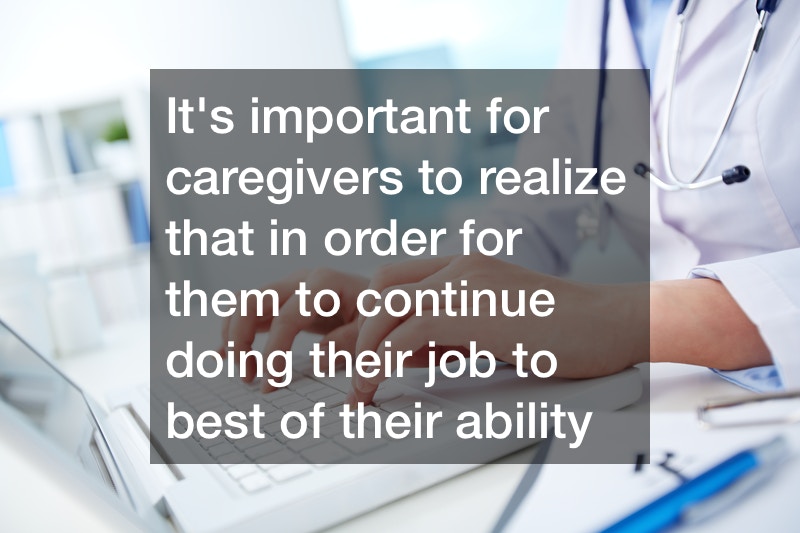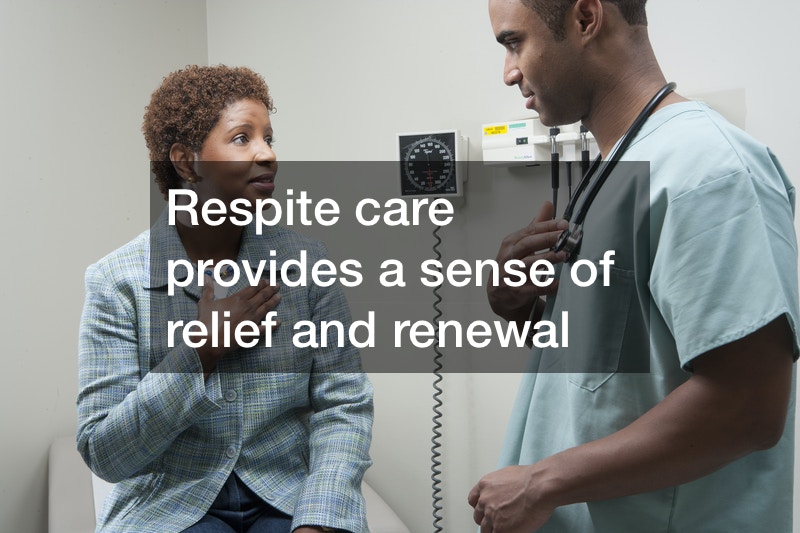The Top 3 Benenfits of Respite Care An Emotional and Physical Retreat for Dedicated Caregivers


When someone needs extra help getting around or taking care of their health, they may need a caregiver to be there with them during their days and perhaps nights. You can hire a caregiver for a loved one to help them with daily tasks. All caregivers are trained in how to help adults to do things they can no longer do and to have empathy with the patients. For Alzheimer’s disease caregivers, it can be hard because the patients often don’t understand what you’re doing. However, caregiving is extremely rewarding work.
If you are interested in being one, you can apply for caregiver program at a local business or in your local community college. There are many people who perform this job and love what they do. Of course, being a family caregiver can be a different experience. It can be just as rewarding, but it can also be upsetting emotionally. Sometimes, people simply have to be caregivers whether it’s difficult or not. When a loved one needs you, it’s an amazing thing to step up and be there for them. It’s a responsibility that may be of the most important ones in your life.

The skilled nursing care provided by rehabilitation teams made up of at home caregivers (such as parents, adult children, relatives, and friends) is provided lovingly and with dedication. But even caregivers must remember to take care of themselves too! Many caregivers feel guilty for feeling tired, stressed, or even frustrated, but these are all natural and normal emotions that are felt by caregivers across the board — professional or not.
However it’s important for caregivers to realize that in order for them to continue doing their job to best of their ability, they have to do their best to take care of themselves! After all, how can you expect to take really take care of someone you love and who depends on you if you can’t or don’t actually take care of yourself? The answer is that you can’t! In fact, committed caregivers are often considered the second “patient” or “victim” of the disease the person they’re caring for is suffering from! This especially true in cases of Alzheimer’s or dementia care or even physical therapy!
The stress of being a committed caregiver can and often does manifest physically in the form of disease. You may not think stress is that big of a deal but it can literally make you sick!

A recent survey from the Commonwealth Fund revealed that more than half– 60% — of family caregivers between the ages of 19 and 64 felt as though their own personal health was only “fair or poor”, with one or more of survey respondents reporting they too suffered from one or more chronic conditions or disabilities. These caregivers, just like you, are desperately in need of some restorative care so that they can have a swift and rapid recovery so they can continue caring for their loved ones! One the other hand, only 33% of non-caregivers surveyed reported any kind of illness, disability, or chronic condition.
Respite care provides a sense of relief and renewal
Just like the patients they so lovingly care for, caregivers also require attention and support in order to maintain their health and vitality. Respite care provides caregivers with the opportunity to do just that. Respite care allows caregivers to take a temporary but much needed break from their caregiving duties and responsibilities. When caregivers take advantage of all the wonderful benefits that respite care has to offer, they can rest assured that their sick loved ones are still being cared for in the best possible way in their absence while they alleviate their stress.

Here are just a few of the benefits of respite care for caregivers.

Relaxation and rejuvenation
When taking a break, caregivers have the freedom to engage in different activities that they find relaxing in order to restore their energy levels and release stress. Common examples include exercise, going for a walk, shopping, going to see a movie, having dinner with friends, or even something as simple as curling up with a good book. Enjoying these activities can also dramatically improve one’s mood, and being in a positive mood is essential for providing top notch or round the clock care to someone ill.
Increased energy
Working hard doesn’t always mean you’re working smart. There’s a huge difference! You may feel as though running around like a chicken without a head makes you a hard worker, but spreading yourself too thin only makes you a jack of all trades but a master of none. In order to really be productive and an effective caregiver, it’s important to take time out to recharge your batteries. Remember, even the best car won’t run on an empty gas tank!
Finding and defining who you really are
Perhaps one of the greatest things about respite care is that allows you to really get to know yourself! When providing long term care to a loved one, it’s easy to lose sight or track of who you really are as a person. You may forget about your own hobbies and passions as you dedicate each working hour to caring and providing for your family and loved ones. Don’t forget who you are!